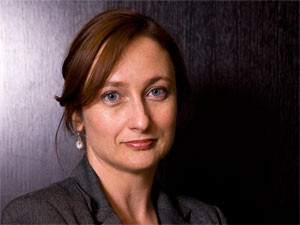
Proposed changes to the legislation that governs the Independent Communications Authority of SA (ICASA) will undermine its independence, and raises concerns over a conflict of interest at the Department of Communications.
In the request for comments on the recently-gazetted Independent Communication Authority of South Africa Amendment Bill, the state says the proposed changes to the legislation aim to provide further clarity on the powers and duties of the establishment of the Complaints and Compliance Commission (CCC) to replace the Complaints and Compliance Committee.
In addition, it aims to confirm the use of electronic communications networks and services for the purpose of electronic transactions, as well as introduce mechanisms to ensure the accountability of committees, ICASA and its councillors.
Alarm bells
However, a lawyer argues that, as the new CCC will be chosen by the communications minister, the Bill expropriates ICASA's powers, because the committee has the power to tell ICASA what to do when it comes to licences.
In addition, notes Kathleen Rice, director of technology, media and telecommunications at law firm Cliffe Dekker Hofmeyr, the comments period takes place over the festive break. Comments can be e-mailed by no later than 10 January 2013.
"It is of great concern that the Bill is published at this time of year, shortly before the mass holiday exodus. Comments are due early January, before the end of the holiday season. This is a typical example, to my mind, of legislation by stealth, made all the more alarming because of the threat it poses to constitutional guarantees."
Rice says, while there are some good changes, these are completely overshadowed by the provisions that allow the minister to appoint the five-member commission, which will replace the current committee established by ICASA.
"ICASA may as well pack its bags and go home. What little independence it has will be completely undermined by the new Complaints and Compliance Commission which is to be appointed by the minister."
Rice explains that the proposed amendments around the new committee and its powers to direct ICASA to revoke and amend licences - including broadcasting licences - is unconstitutional. The new committee is not, as stated in the memorandum accompanying the Bill, a delegation of powers, but rather an expropriation of ICASA's powers, she adds.
Currently, the CCC makes recommendations to ICASA which the authority has discretion to implement, adds Rice.
The CCC is an independent committee that is required to investigate and hear, if appropriate, and make a finding on all matters referred to it by ICASA, complaints received by the committee, and allegations of non-compliance with the ICASA Act or underlying statutes.
It may make any recommendation to ICASA if necessary, or incidental to, ICASA's performance in terms of the ICASA Act as well as achieving the law's objectives. It comprises seven people and its chairman must either have been a High Court judge, an advocate or attorney with 10 years' experience, or a magistrate with at least 10 years' service.
Dual roles
Democratic Alliance shadow minister of communications Marian Shinn says ICASA's independence is constitutionally guaranteed, and to try and take away the independence of its most important unit, the CCC, and place power over this with the department undermines the authority.
Shinn says the Bill should be put on ice until after the ICT policy review has been completed. She says, while technical aspects can be fixed, the Bill is unnecessary in its current form.
Rice notes that the Constitution guarantees an independent broadcasting regulator, which extends to telecoms in the converged electronic communications environment. "In addition, the means of expression, whether it be broadcasting or telecommunications, enjoys constitutional protection as an extension of the right to freedom of expression. An independent regulator is essential in protecting the means of free expression."
The Bill must also be viewed against the backdrop of the moves on the part of the ANC to determine Telkom's strategy and to "nationalise" Telkom again, says Rice. "The minister will face a huge conflict of interest as a licensee and the de facto regulator through the committee. The minister will be poacher and gamekeeper."
Government is Telkom's single largest shareholder, with almost 40%, and the Public Investment Corporation has about 10%. Communications minister Dina Pule recently met with the embattled operator in a bid to strengthen ties between it and the state.
The state, which this year binned a proposed R3.3 billion deal by KT Corporation to buy 20% of Telkom, sees the operator as strategic in its aim to rollout universal broadband by 2020.
Pule and a high-level inter-ministerial task team have been deliberating strategies to turn the operator around. However, these have yet to be made public, causing investors to shy away from the stock, which has taken a beating during the year.
The department says it welcomes the comments and interest that is generated by the ICASA amendment Bill. "Public engagement and participation is a crucial part of developing legislation. The comments, channelled through the proper public engagement structures, can only enhance the final legislation."
Share